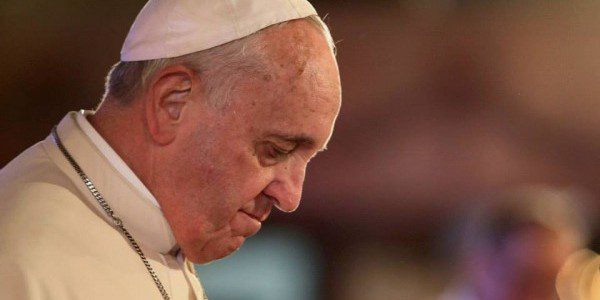It’s conceivable that God couldn’t have possibly created a world that has free, moral agents in it who do not also misuse their freedom.

That’s that gist of Alvin Plantinga’s version of the “free-will defense” for why God could be both good and powerful, and yet evil exits. I came across a good summary description of Plantinga’s argument, which has at the heart of it that intriguing phrase, “transworld depravity,” in an article by Matthew Lundberg.
Here’s the gist:
Plantinga argues that there is no clear logical contradiction involved inholding that a good, powerful God and evil both exist. For it is possible that an omnipotent being would be unable to eliminate evil if evil is “included in some good state of affairs that outweighs it.” A good state of affairs that somehow involves evil–or at least the risk of evil–is the possibility of moral good. For moral good may require libertarian freedom–the ability to choose between alternatives in morally significant decisions.
Yet it may be the case, in the sense that there is no logical contradiction involved, that freedom involves the possibility of its wrongful use. As Plantinga writes, “The heart of the Free Will Defense is the claim that it is possible that God could not have created a universe without creating one that also contained moral evil. And if so, then it is possible that God has a good reason for creating a world containing evil.”
In other words, if freedom is part of the condition of the world, then it is quite possible that God’s omnipotence does not include the ability to actualize just any possible world, since the worlds that God can actualize logically depend, at least in part, upon human choices. Plantinga develops the concept of “transworld depravity” to suggest the logical possibility that free creatures would use their freedom wrongly in any possible world. If so, then it is at least possible that God, despite being omnipotent, could not create a world with a balance of less evil without doing away with the possibility of moral good. For in so doing, God would have to do away with freedom (174).
Plantinga’s argument is rather complicated, to say the least, and its structured on modal logic–a form of philosophizing that I’ve never personally found compelling. I don’t think that the beddazling “logic” of the argument works nearly as well when you start reflecting on the real, actual world again.
However, when you step back a bit from the devil in the details” of the argument, it is interesting to consider the possibility, in a Leibnizian “best-of-all-possible-worlds” kinda sense, that God simply couldn’t create a world that included both moral freedom and no moral evil.
But then you ask yourself, “but isn’t that what heaven is supposed to be like?” And you’re right back to realizing that there’s no entirely adequate answer to this problem. But if there is any good answer at all, from a Christian theological standpoint, it has to include some notion of “heaven,” or eschatological overcoming of evil.
I agree with Lundberg’s conclusion to his article, when he writes:
But more than anything else, the limitations of even our best arguments are a reminder that the Christian church’s only truly compelling response to the problem will be the eschaton itself, when freedom finally stands beyond the risk of evil (186).
The quote is from Matthew Lundberg, “The Logic and Limits of the Free Will Argument: An Eschatological Reconsideration,” in Modern Theology 32:2 (April 2016), pp. 170-186. (all quotes within are from Alvin Plantinga’s God, Freedom, and Evil).











